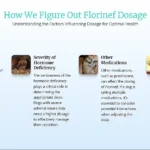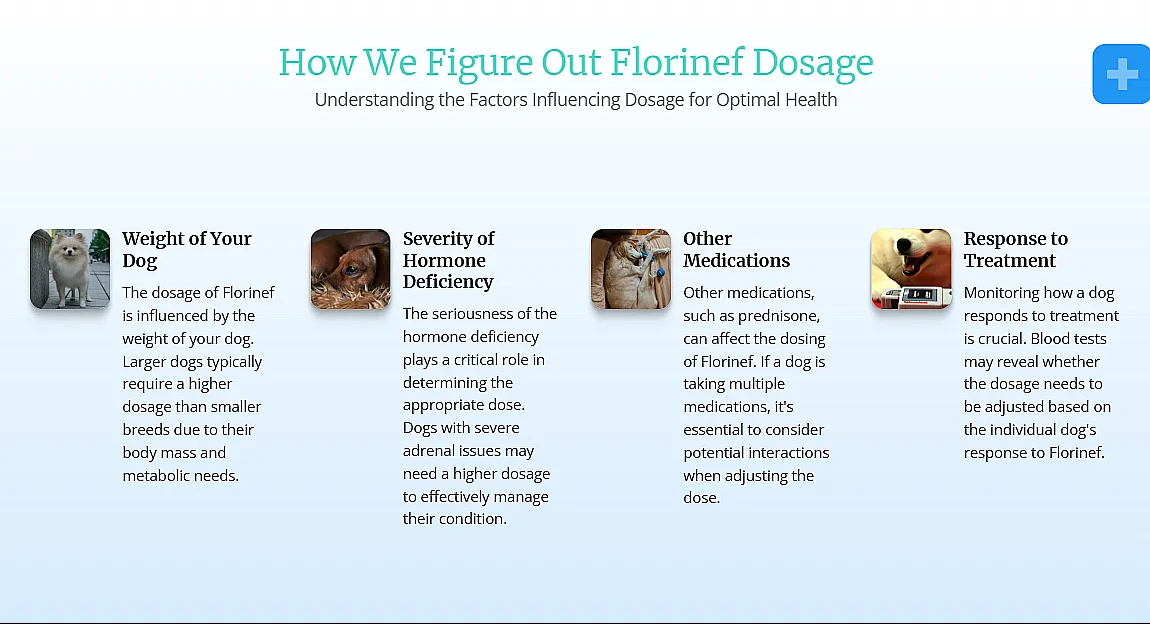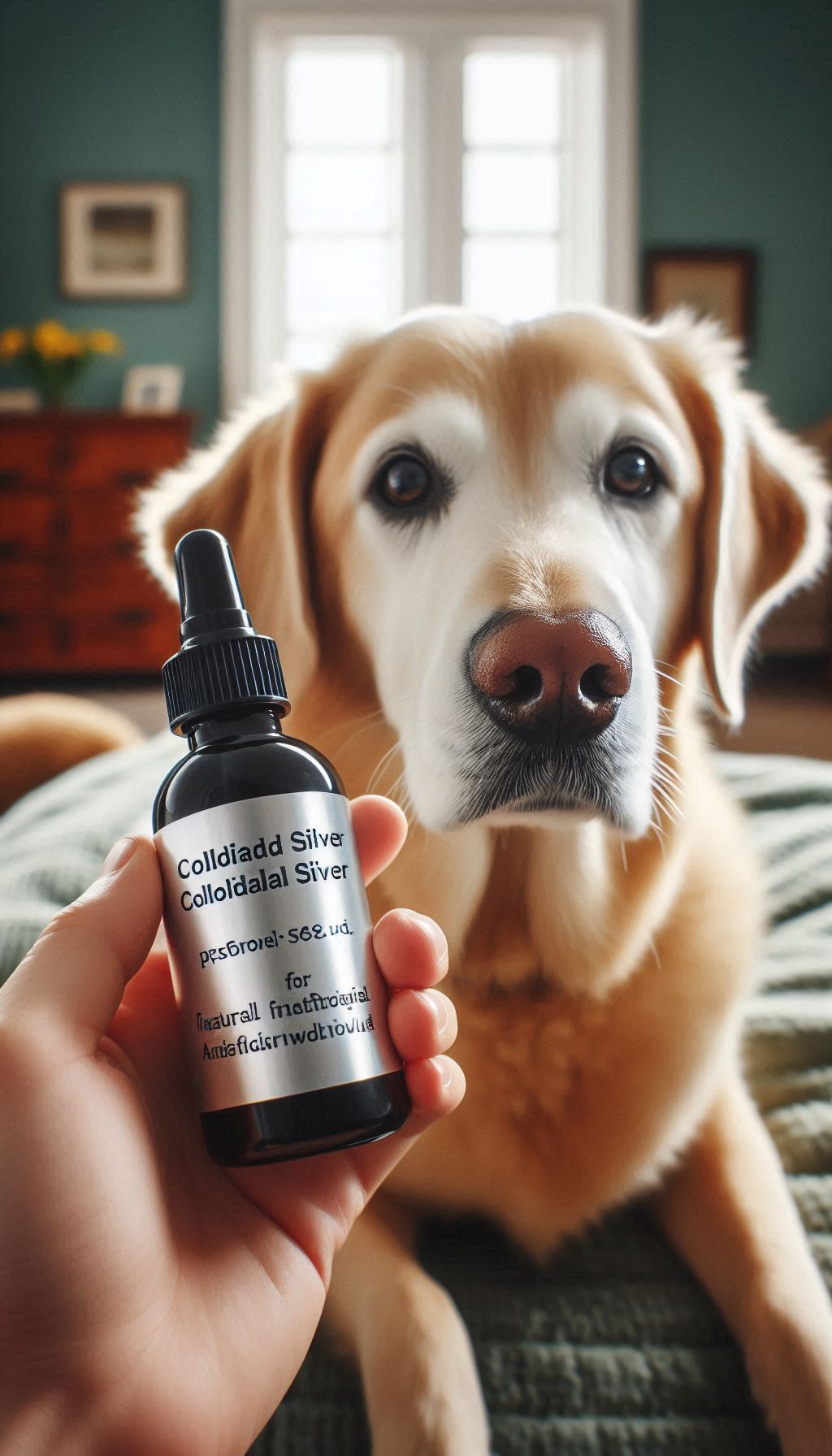Understanding Deworming in Dogs
Deworming is an essential aspect of canine health that every pet owner should understand. Just as humans can contract intestinal parasites, dogs are equally susceptible to various types of worms, including roundworms, hookworms, whipworms, and tapeworms. These parasites can significantly harm a dog’s health, leading to severe digestive issues, malnutrition, and overall discomfort. The process of deworming involves administering medication to eliminate these parasites from the dog’s body. A prime example of effective deworming medication is Prazisam Plus, a broad-spectrum dewormer designed to tackle a variety of internal parasites with just a single dose. By utilizing such medications, pet owners can ensure their dogs maintain optimal health and vitality.
Importance of Regular Deworming
Many pet owners may wonder why regular deworming is crucial. Regular deworming forms a protective shield for your furry friend. Here are some key reasons illustrating the importance of keeping up with a deworming regimen:
- Prevention of Reinfestation: Dogs can easily re-infect themselves with parasites through contaminated environments, food, or water. Regular deworming helps to break the cycle of reinfestation.
- Improved Health and Well-Being: Parasites can deplete nutrients from your dog’s system, leading to weight loss, lethargy, and a dull coat. Regular deworming allows your dog to absorb essential nutrients effectively, enhancing their overall well-being.
- Early Detection: Regular vet check-ups can also help in identifying potential worm infestations early on, allowing for timely treatment before they progress to a more serious health issue.
- Peace of Mind: Knowing that you’re taking proactive steps in your dog’s health can give you peace of mind. Regular deworming is a simple yet effective way to ensure that your canine companion remains healthy and happy.
To highlight further, it’s essential to recognize how worm infestations often go unnoticed. For instance, many dog owners may not realize that symptoms such as a bloated stomach, changes in appetite, or unusual lethargy can indicate the presence of harmful parasites. These signs can be subtle and may be brushed off as normal behaviors or temporary issues. Therefore, regular deworming serves as both a preventive measure and a proactive health strategy. In summary, understanding deworming in dogs is crucial for any responsible pet owner. By prioritizing regular deworming schedules and recognizing the symptoms of worm infestations, dog owners contribute significantly to the longevity and quality of their pets’ lives. Embracing immediate action against parasites protects not only the dog but also the household and the community from potential health risks posed by these pests. Transitioning to effective solutions, let’s explore the qualities and workings of Prazisam Plus, an effective tool in the arsenal against canine worms.
What is Prazisam Plus?
Overview of Prazisam Plus
Prazisam Plus is a highly effective single-dose dewormer designed specifically for dogs, providing pet owners with a reliable solution to combat internal parasites. Manufactured by Vetoquinol, a company with a strong reputation in veterinary health, Prazisam Plus is characterized by its broad-spectrum activity, ensuring it targets a variety of common parasitic worms such as roundworms, hookworms, whipworms, and tapeworms. What sets Prazisam Plus apart is its formulation comprising several active ingredients, including:
- Praziquantel (50 mg): Primarily effective against tapeworms, it helps to paralyze and disintegrate the worms.
- Pyrantel Pamoate (144 mg): This ingredient works on roundworms and hookworms by causing paralysis, making it easier for the dog to expel them from its system.
- Fenbendazole (500 mg): A broad-spectrum anthelmintic effective against a variety of intestinal parasites.
Available in convenient packaging of two tablets per box, Prazisam Plus comes with a high margin of safety, making it suitable for dogs of all life stages.
How Prazisam Plus Works
Understanding how Prazisam Plus operates is crucial for ensuring its effective application. When administered to dogs, each tablet targets multiple parasites simultaneously, effectively clearing their systems of unwanted guests. Here’s a closer look at the mechanism:
- Paralysis of Parasites: Upon ingestion, the ingredients swiftly work together to disrupt the neuromuscular functions of the worms. For instance, Praziquantel alters the permeability of the worm’s skin, leading to paralysis and eventual death.
- Efficient Elimination: Once paralyzed, the worms can no longer attach to the dog’s intestinal lining and will be expelled naturally through the digestive system. This process not only helps improve digestive health but prevents the risk of reinfection.
- Convenience of a Single Dose: Unlike some other dewormers that require multiple doses spread over several days, Prazisam Plus is delivered in a single tablet per 10 kg of body weight, making it remarkably straightforward for pet owners. This ease of use is particularly beneficial for busy pet owners who may struggle to keep track of multiple doses.
- Proven Efficacy: Studies and practical applications show that Prazisam Plus is effective against several types of worms, including hydatid worms, providing pet owners comprehensive protection against these parasites.
In conclusion, Prazisam Plus is a cutting-edge deworming solution that simplifies maintaining your dog’s health. With its effective combination of ingredients and ease of administration, pet owners can feel confident they are taking the necessary steps to keep their furry friends parasite-free. Transitioning from understanding Prazisam Plus, let’s delve into recognizing the signs that may indicate your dog needs deworming.
Signs Your Dog Needs Deworming
Common Symptoms of Worm Infestation
Recognizing the signs of worm infestation in dogs is crucial for maintaining their health and well-being. Worms can wreak havoc on a dog’s body, often leading to serious health problems if left untreated. As a pet owner, it’s important to stay vigilant for any unusual behavior or physical symptoms that may indicate your dog is dealing with parasites. Here are some common symptoms to watch for:
- Vomiting: Frequent vomiting can indicate the presence of worms, especially if you notice your dog expelling small worms or segments that resemble rice.
- Diarrhea: Soft stools or frequent bowel movements, particularly if they contain any blood or mucus, could suggest a worm infestation.
- Weight Loss: Even if your dog seems to have a good appetite, significant weight loss might signal that worms are consuming the nutrients your pet needs.
- Bloated Abdomen: A distended or bloated stomach is often associated with intestinal worms, giving your dog an uncomfortable appearance. This is particularly pronounced in puppies.
- Changes in Appetite: If your dog suddenly loses interest in food or seems excessively hungry, it could be a sign of worms.
- Lethargy: Noticeable fatigue, decreased energy levels, or a lack of enthusiasm for play can indicate that your dog’s health is being compromised by parasites.
- Worms in Feces: Finding worms in your dog’s stool or around their anus (often resembling spaghetti or rice) is a definitive sign that your dog is infested.
Each dog’s symptoms can vary, and factors like their age and overall health can influence how noticeably these signs present themselves. Personal experiences can resonate; for instance, when my friend’s golden retriever began to lose weight despite regular feeding, they discovered a serious roundworm infestation that was quickly resolved with prompt veterinary assistance.
When to Consult a Vet
Understanding when to consult a veterinarian is vital in preventing the worsening of a worm infestation. If you notice any of the symptoms listed above, it’s crucial to schedule a vet visit promptly. Here are some key scenarios in which you should reach out for help:
- Immediate Symptoms: If your dog is vomiting or having severe diarrhea, especially with blood or mucus, a veterinary consultation is urgent.
- Persistent Symptoms: Should any of the symptoms persist for more than a day or two despite changes in diet or environment, it’s best to seek professional advice.
- Puppies and Elderly Dogs: It’s especially important to consult a vet for puppies and older dogs, as they can be more susceptible to severe health issues caused by worms due to their developing and weakening immune systems.
- Recurring Infestations: If your dog has had a history of repeated worm infestations, discussing a more comprehensive prevention strategy with your vet is recommended.
Early detection and action can make a world of difference in restoring your dog’s health and preventing further complications. As we move forward, let’s dive into establishing a deworming schedule that not only fits your dog’s lifestyle but also fosters their long-term health and well-being.
Deworming Schedule for Dogs
Guidelines for Deworming Frequency
Establishing a deworming schedule is a vital aspect of your dog’s overall health care. Just as you wouldn’t skip vaccinations, regular deworming should also be a non-negotiable part of your pet’s routine. The frequency of deworming depends on several factors, including the dog’s age, lifestyle, and the prevalence of parasites in your area. Here’s a common deworming guideline:
- Puppies:
- Begin deworming as early as 2 weeks of age.
- Continue every two weeks until they are 12 weeks old.
- After that, a further dose at 6 months old is recommended.
- Adult Dogs:
- Most adult dogs should generally be dewormed every 6 months.
- If your dog is at higher risk for worms due to lifestyle or frequent exposure to other animals (like dog parks), consider more frequent treatments every 3-4 months.
- Special Cases:
- Pregnant dogs may require deworming prior to whelping (puppy birth) to prevent transmission to puppies.
- Older dogs or those with weakened immune systems may need more frequent deworming.
By adhering to a consistent deworming schedule, you significantly lower the chances of your dog developing health issues related to parasite infestations. For instance, I recall when my neighbor’s puppy experienced severe lethargy and gastrointestinal distress due to roundworms, highlighting the importance of starting deworming treatments early.
Importance of Following a Schedule
Following a deworming schedule is not just a recommendation; it’s crucial for your dog’s health. Here’s why consistency is key:
- Prevention is Better than Cure: Regular deworming helps prevent the establishment of parasitic infections, which can lead to serious health concerns. For example, hookworms can cause severe anemia in puppies and adult dogs if left untreated.
- Protective Measures for Families: Many canine parasites can be zoonotic, meaning they can transfer from dogs to humans. By regularly deworming your pet, you mitigate the risk of transmission to family members, particularly young children, the elderly, or those with compromised immune systems.
- Enhanced Digestion and Nutrient Absorption: Intestinal worms can rob your dog of vital nutrients, leading to malnutrition and stunted growth, especially in puppies. Regular deworming ensures your dog can absorb nutrients effectively, promoting healthier growth and a shinier coat.
- Cost-Effective Health Care: Regularly deworming your dog can save you from costly veterinary bills associated with severe infestations that could require intensive treatment or hospitalization.
By prioritizing a deworming schedule, you take proactive steps to safeguard your dog’s health and well-being. Ensuring your furry friend is free of intestinal parasites not only contributes to their vitality but also enhances their quality of life. In conclusion, transitioning from basic deworming practices to preventive care is essential. Now that we understand the significance of a deworming schedule, let’s move on to administering Prazisam Plus, an effective dewormer that fits seamlessly into this essential routine.
Administration and Dosage of Prazisam Plus
Proper Way to Administer Prazisam Plus
Administering Prazisam Plus to your dog is a straightforward process, thanks to its convenient single-dose formulation. However, doing it correctly is essential to ensure your pet receives the full benefits of the dewormer. Here’s how to effectively administer Prazisam Plus:
- Prepare for Administration:
- Ensure that you have the correct dosage verified by your veterinarian based on your dog’s weight.
- Have some treats handy to reward your dog afterward, making the experience more positive.
- Administering the Tablet:
- Oral Administration: For the majority of dogs, giving the tablet orally is the simplest method. You can try one of the following methods:
- Direct Feeding: Place the tablet at the back of your dog’s throat and gently hold their mouth closed until they swallow. You may need to rub their throat gently to encourage swallowing.
- In Food: Alternatively, hiding the tablet in a small amount of your dog’s favorite food or a treat, such as peanut butter or cheese, can make administration easier. Just ensure they eat the whole amount so they receive the full dose.
- Oral Administration: For the majority of dogs, giving the tablet orally is the simplest method. You can try one of the following methods:
- Post-Administration Praise:
- Give your dog plenty of praise and a treat afterward. This will help them associate the act of taking medicine with a positive experience, making future administrations easier.
In my own experience, I discovered that using peanut butter worked wonders for my dog, who initially resisted taking her medicine. The excitement of her favorite treat made all the difference.
Recommended Dosage
Getting the dosage right is crucial for effective treatment. Prazisam Plus is designed to be a potent, broad-spectrum dewormer for dogs, and the dosing guidelines should be strictly followed for optimal results.
- General Dosage Guidelines:
- The recommended dosage is 1 tablet per 10 kg (22 lbs) of body weight. This makes it easy for most pet owners to calculate the right amount based on their dog’s size.
- Administration Frequency:
- For adult dogs, the deworming can typically be repeated every 3 to 6 months, depending on the dog’s risk of infection and following your veterinarian’s advice.
- Puppies should follow a more frequent deworming schedule as discussed earlier, starting as early as 2 weeks of age.
- Considerations:
- Always consult with your veterinarian if your dog is pregnant, nursing, or has existing health conditions prior to administering Prazisam Plus.
- Formulation:
- Each tablet contains:
- Praziquantel (50 mg): Effective against tapeworms.
- Pyrantel Pamoate (144 mg): Tackles roundworms and hookworms.
- Fenbendazole (500 mg): Targets a variety of intestinal parasites.
- Each tablet contains:
In closing, following the proper administration techniques and dosage recommendations for Prazisam Plus can greatly enhance your dog’s health by effectively eliminating harmful internal parasites. With vigilance and a little effort, you’re on your way to a healthier, happier pet. Transitioning from dosage administration, let’s discuss potential side effects and safety considerations of using Prazisam Plus to ensure your dog remains in great health while undergoing treatment.
Safety and Side Effects
Safety Precautions to Take
When it comes to administering any medication, including dewormers like Prazisam Plus, safety should always be a top priority. Following proper precautions helps ensure that your dog receives the benefits of the medication while minimizing risk. Here are some essential safety precautions to consider:
- Consult Your Veterinarian:
- Before starting any deworming treatment, it’s crucial to consult your veterinarian, especially if your dog has existing health conditions or is on other medications. Your vet can help determine which dewormer is best suited for your dog’s specific needs.
- Check for Allergies:
- Although adverse reactions are rare, it’s essential to know if your dog has a history of reactions to medications, particularly anthelmintics (dewormers). If your dog has had an adverse reaction to any deworming product in the past, inform your vet immediately.
- Observe Weight Guidelines:
- Ensure you administer the right dosage based on your dog’s weight. Prazisam Plus is formulated as 1 tablet per 10 kg (22 lbs) of body weight. Over-dosing can lead to complications, while under-dosing may fail to effectively eliminate the parasites.
- Consider Health Status:
- Dogs that are pregnant, nursing, or have compromised immune systems may require special consideration. Therefore, reviewing your dog’s health status with the vet is essential prior to administration.
- Monitor After Administration:
- After giving Prazisam Plus, keep an eye on your dog for any unusual behaviors or symptoms immediately following the treatment.
When I first administered a dewormer to my dog, I found that being extra vigilant post-treatment helped ease my nerves. Observing her energy levels and appetite gave me peace of mind that everything was going smoothly.
Potential Side Effects to Watch for
Like any medication, Prazisam Plus may come with potential side effects. While it has a high safety margin, it’s important to be aware of what to watch for after administration:
- Mild Gastrointestinal Upset:
- Some dogs may experience mild vomiting or diarrhea within the first few days after taking the dewormer. This is often due to the dying parasites in the gut and typically subsides on its own.
- Loss of Appetite:
- A temporary decrease in appetite can occur as your dog adjusts to the medication. If the appetite does not improve within 24-48 hours, consult your vet.
- Lethargy or Fatigue:
- Some dogs may seem more tired than usual or have less energy after treatment. This can be normal, but if lethargy persists for more than a couple of days, it warrants a call to the vet.
- Allergic Reactions:
- Though rare, signs of allergic reactions such as itching, swelling, or difficulty breathing should be taken seriously. If you notice any of these symptoms, seek veterinary assistance immediately.
Being informed about these potential side effects can make a big difference in how quickly you react and seek help if necessary. Most dogs tolerate Prazisam Plus very well, but taking time to observe their behaviors post-dosing is a wise approach. In conclusion, safety and vigilance go hand-in-hand when it comes to administering Prazisam Plus to your dog. Ensuring a safe environment and being aware of potential side effects protects your pup’s health and enhances their overall well-being as they embark on a parasite-free life. Now, let’s delve into some frequently asked questions regarding the use of Prazisam Plus and address common misconceptions about deworming treatments.
FAQs About Deworming with Prazisam Plus
Commonly Asked Questions Answered
When considering Prazisam Plus for your dog, you may have several questions about its usage, effectiveness, and overall safety. Here are answers to some of the frequently asked questions pet owners typically have:
- What is Prazisam Plus?
- Prazisam Plus is a single-dose broad-spectrum dewormer that helps eliminate various internal parasites in dogs, including roundworms, hookworms, whipworms, and tapeworms.
- How does Prazisam Plus work?
- The active ingredients in Prazisam Plus include Praziquantel, Pyrantel Pamoate, and Fenbendazole. Each component targets different types of parasites, effectively paralyzing them and allowing the dog’s body to expel them naturally.
- Is Prazisam Plus safe for all dogs?
- Yes! Prazisam Plus is suitable for dogs of all life stages. However, it is always wise to consult your veterinarian before beginning any treatment, especially for pregnant or nursing dogs or those with existing health issues.
- How often should my dog be dewormed with Prazisam Plus?
- For adults, it’s typically recommended to administer Prazisam Plus every 3 to 6 months, but frequency can be adjusted based on your dog’s risk of exposure to parasites.
- What should I do if I notice side effects after administering Prazisam Plus?
- While side effects are rare and usually mild (like temporary gastrointestinal upset), it’s important to monitor your dog for any unusual symptoms. If side effects persist or worsen, contact your veterinarian for advice.
In my own experience, after giving my dog Prazisam Plus, I made a note to observe her behavior for a few days, which provided reassurance that she was adjusting well to the treatment.
Clarifying Misconceptions
There are many misconceptions surrounding pet deworming, and it’s essential to address them to ensure that pet owners have the correct information.
- “Once my dog is dewormed, they’re immune to worms forever.”
- This is a common myth. Deworming does not provide immunity. Dogs can easily re-infest themselves through contaminated environments or interactions with infected animals. Regular deworming is necessary to keep them protected.
- “All dewormers are the same.”
- Not all dewormers work against the same parasites. Prazisam Plus has a broad spectrum of activity but other dewormers might not cover all types of worms. It’s important to choose a product formulated to treat the specific parasites your dog may be exposed to.
- “I can use human dewormers on dogs.”
- This is false and potentially dangerous. Human medications can be toxic to dogs. Always use veterinary-approved medications specifically formulated for pets.
- “Deworming is only for puppies.”
- While puppies are especially susceptible to worms, adult dogs also need regular deworming as they remain at risk throughout their lives.
Understanding the truth behind these myths can lead to better health choices for our canine companions. So, whether you are considering Prazisam Plus for the first time or have questions about your dog’s deworming schedule, being informed is the best approach. In summary, keeping your dog` parasite-free is critical to their health and happiness. Now that we’ve tackled common questions and misconceptions, let’s move ahead to explore practical tips for effective deworming and maintaining your pet’s health in the long run.
Tips for Effective Deworming
Maintaining Hygiene and Prevention
Effective deworming goes beyond just administering medications like Vetoquinol Prazisam Plus; it involves maintaining a clean living environment and practicing good hygiene. Here are some essential tips to help keep your dog parasite-free:
- Regular Cleaning:
- Regularly clean your home and your dog’s living areas. This includes washing bedding, toys, and food bowls frequently to minimize the risk of reinfestation.
- Dispose of feces promptly from your yard or any area your dog plays in, as worm eggs can survive in the soil for long periods.
- Safe Practices During Walks:
- If your dog enjoys walks in parks or other communal areas, be cautious. Avoid letting them sniff or interact with feces left by other animals, as it can contain infective eggs or larvae.
- Routine Vet Visits:
- Schedule regular veterinary check-ups for your dog, which should include stool tests to check for any unseen parasites and to tailor your deworming schedule as needed.
- Maintain a Good Diet:
- Feeding a well-balanced diet can help boost your dog’s immune system, making them less susceptible to infections. High-quality dog food, like those offered by brands such as Orijen or Acana, can contribute to overall health.
In my experience, I found that integrating good hygiene practices early on kept my dog healthy and happy. For instance, establishing a ‘poop patrol’ routine in the yard made a significant difference.
Combating Reinfestation
Despite diligent efforts in deworming and cleanliness, reinfestation can still occur. Here are strategies to combat this challenge effectively:
- Regular Deworming Schedule:
- Follow the recommended deworming schedule strictly. For adult dogs, this means treatments every 3 to 6 months, while puppies may require more frequent treatments. By keeping to this routine, you reduce the chances of reinfestation.
- Use of Preventatives:
- Consider using preventative treatments suggested by your veterinarian. These can range from worming medications to flea controls, as fleas can be carriers of tapeworm larvae.
- Monitor Your Dog’s Behavior:
- Keep an eye out for signs of worm infestation, such as vomiting, weight loss, or changes in appetite. Prompt action can limit further complications and reinfestations.
- Educate Yourself About Parasite Lifecycles:
- Understanding how different worms live and reproduce helps in preventing exposure. For example, roundworms can be passed from mother dogs to puppies even while nursing. Awareness of these details aids in more informed decisions regarding the health of your dog and their environment.
- Health Education:
- Share information with friends or family who also own pets. The more informed pet owners are about the risks and treatments for internal parasites, the better we can collectively combat reinfestation.
In closing, effective deworming is a comprehensive process that involves more than just the medication itself. By integrating hygiene practices, proactively managing your dog’s environment, and keeping to a regular schedule, you can significantly reduce the risk of internal parasites. Now that we have covered important safety tips and preventative measures, let’s wrap things up with a brief conclusion on the significance of maintaining your dog’s health through consistent deworming practices.
Conclusion
Recap of Key Points
As we bring this discussion on deworming to a close, it’s crucial to reflect on the key points we’ve covered regarding maintaining the health and well-being of your beloved canine companion.
- Understanding Parasites:
- Dogs can be affected by various internal parasites, including roundworms, hookworms, whipworms, and tapeworms. Each of these parasites can cause significant health issues if left untreated.
- Recognizing Symptoms:
- It’s vital to be vigilant about recognizing the early signs of worm infestations, such as vomiting, diarrhea, weight loss, lethargy, and the presence of worms in feces. Early detection leads to more effective treatment.
- Deworming Schedule:
- Establishing a deworming schedule is essential for keeping your dog healthy. Puppies typically require more frequent treatments than adult dogs, who should be dewormed every 3 to 6 months based on their risk levels.
- Using Prazisam Plus:
- Prazisam Plus is an effective dewormer available for dogs, providing a single-dose solution to eliminate various internal parasites. Each tablet contains specific active ingredients that target different worms, ensuring comprehensive treatment.
- Maintaining Hygiene:
- Good hygiene practices, such as regularly cleaning your dog’s living area, disposing of feces promptly, and monitoring your pet’s behavior, play a key role in preventing reinfestation.
In my experiences, adhering to these aspects helped me foster a stronger bond with my dog while ensuring her health was priority number one.
Importance of Deworming Your Dog
The importance of deworming your dog cannot be overstated. It is a critical component of preventive care that protects not only your furry friend but also your family. Here’s why deworming is essential:
- Health and Well-Being: Parasitic infections can lead to severe health complications, including malnutrition, anemia, and gastrointestinal obstructions. Regular deworming keeps your dog happy and healthy.
- Zoonotic Risks: Many parasites that infect dogs can also pose risks to humans (zoonotic). By ensuring your dog is dewormed, you reduce the risk of accidental transmission to family members, especially to children and individuals with compromised immune systems.
- Overall Quality of Life: A healthy dog is a happy dog. Regular deworming contributes significantly to improving your dog’s quality of life, ensuring they are energetic, playful, and free from discomfort caused by parasites.
- Financial Savings: Treating severe health complications arising from unresolved infestations can be costly. Preventative care, including regular deworming, helps avoid expensive veterinary treatments down the road.
In conclusion, by making deworming a routine part of your dog’s health care, you ensure a healthier, happier life for your pet. Always consult your veterinarian for tailored deworming plans and stay informed about the latest in pet care practices. Your dog deserves the best care, and deworming plays an integral role in their long-term health and happiness.










